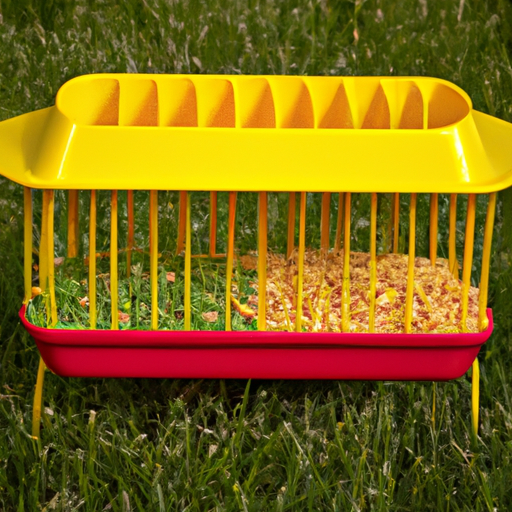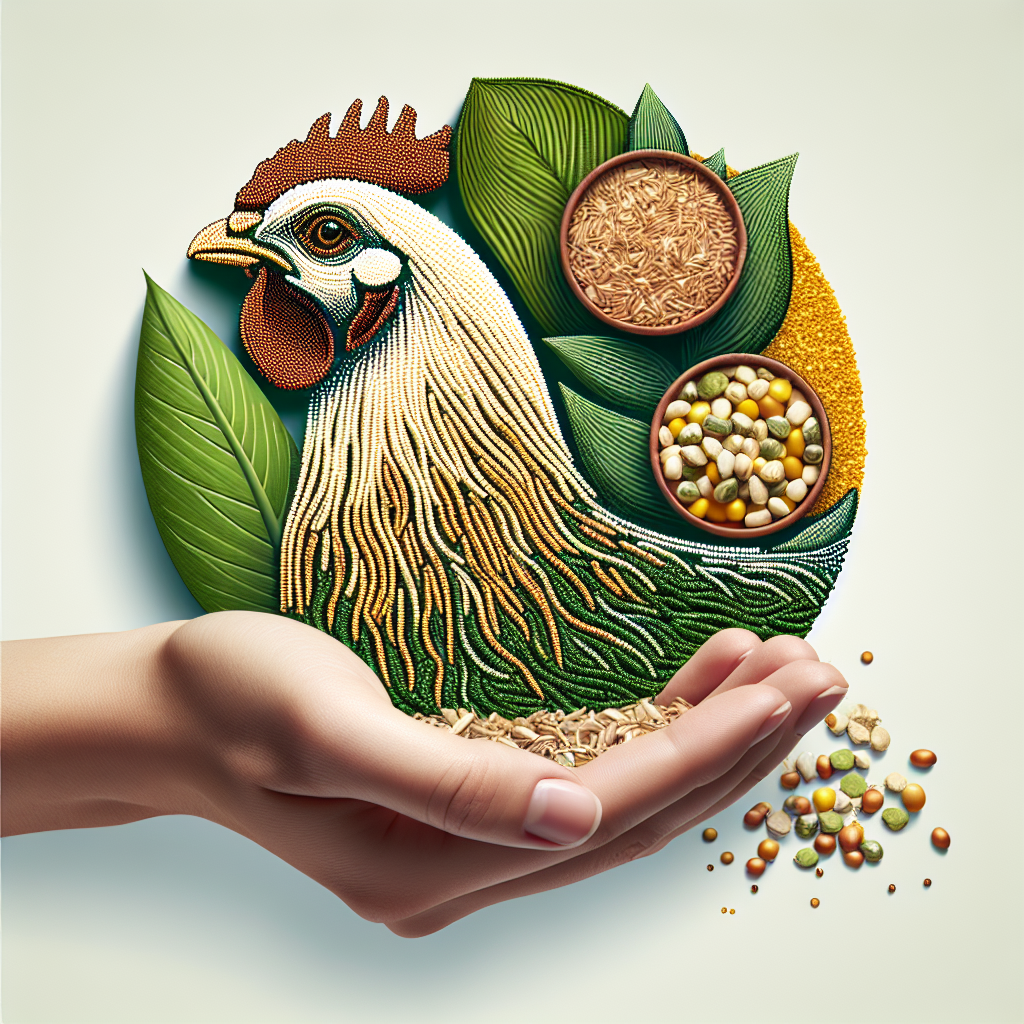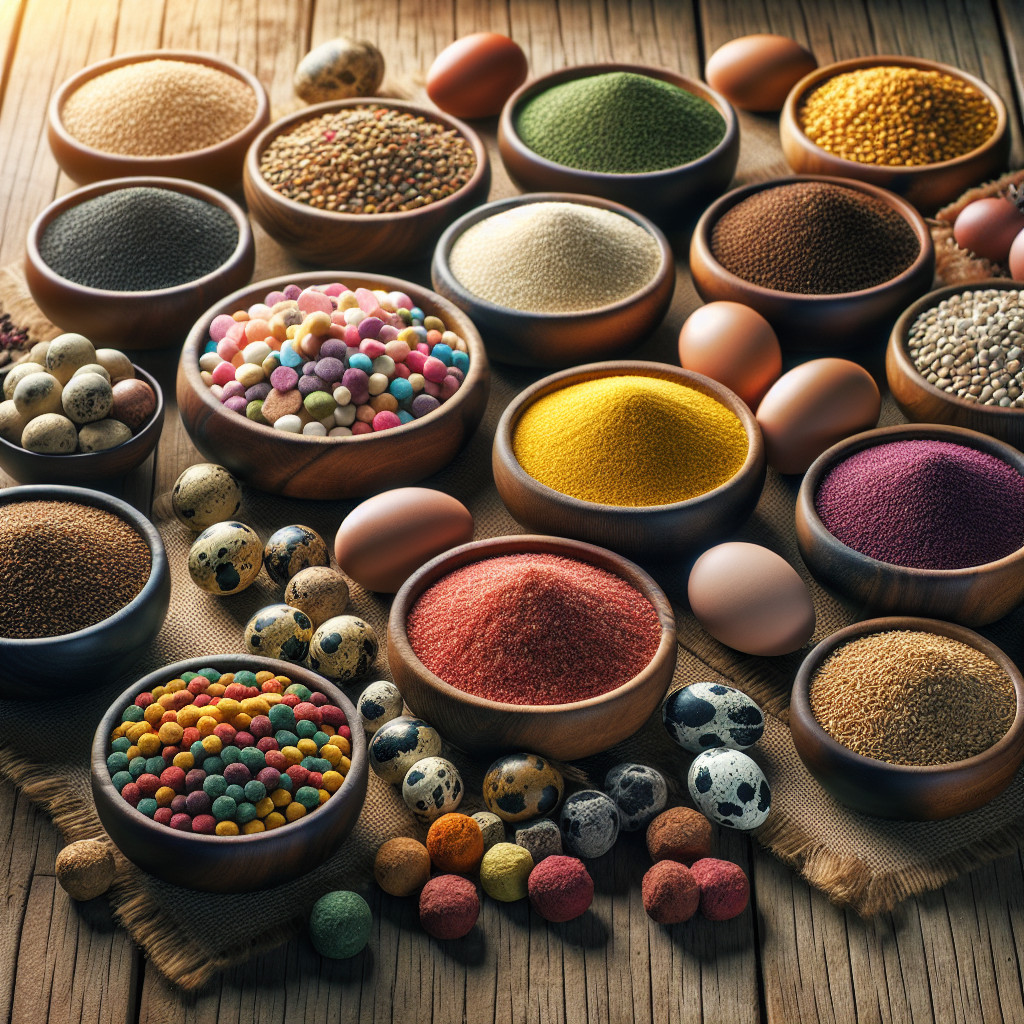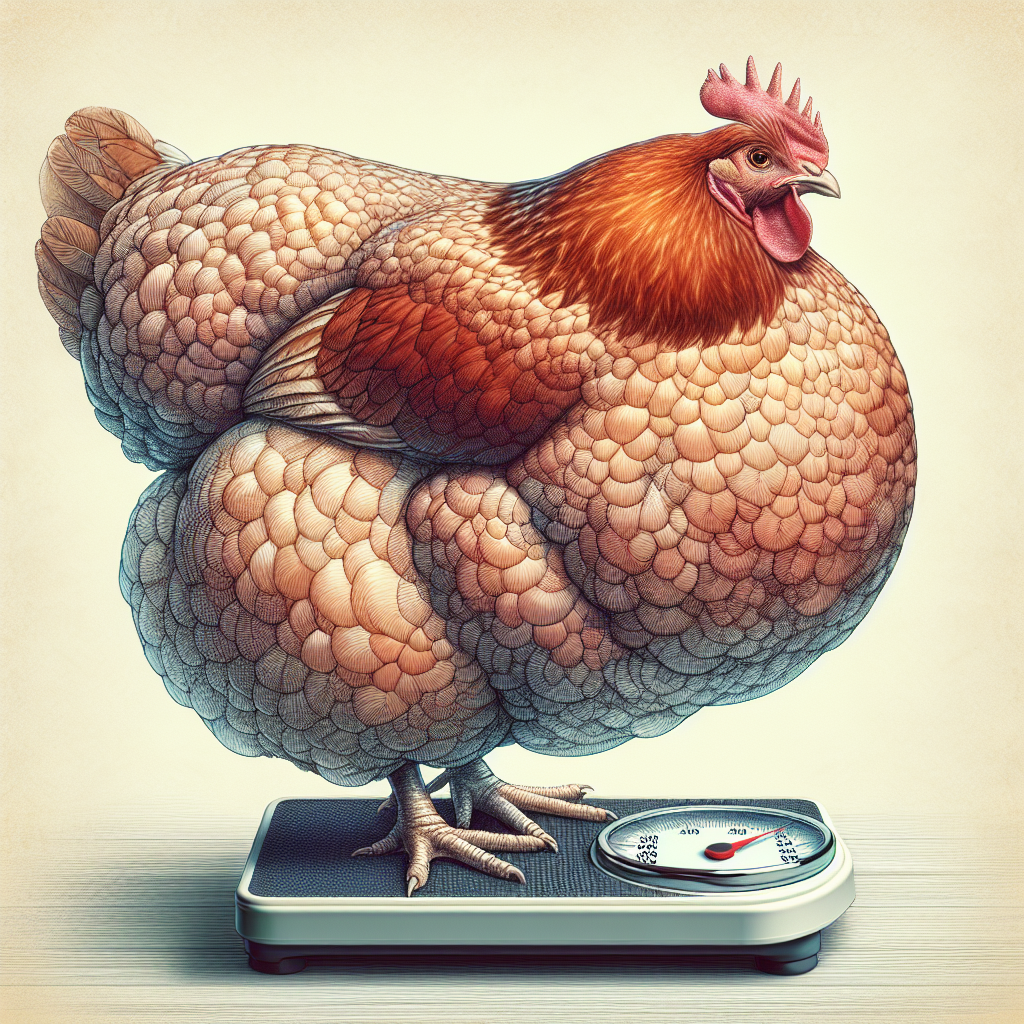Are you looking for ways to provide your chickens with a balanced and nutritious diet? Ensuring that your feathered friends receive the right nutrients is vital for their health and overall well-being. In order to achieve this, it is important to understand their dietary needs and make informed choices when it comes to their feed and supplements. By focusing on the right combination of grains and protein sources, as well as providing access to fresh greens and plenty of clean water, you can easily provide your chickens with the nourishment they need to thrive. In this article, we will explore some helpful tips and strategies to ensure that your chickens receive a balanced and nutritious diet.
Understanding the Nutritional Requirements of Chickens
Importance of a Balanced and Nutritious Diet for Chickens
As a chicken owner, it is vital to understand the importance of providing your flock with a balanced and nutritious diet. Just like humans, chickens require a variety of nutrients to maintain optimal health, growth, and productivity. A well-balanced diet ensures that chickens have the necessary energy, vitamins, minerals, and proteins to thrive. It not only promotes their physical well-being but also contributes to the quality of the eggs they produce. By feeding your chickens a balanced diet, you are investing in their overall health and longevity.
Key Nutrients Required by Chickens
To provide a balanced diet, it is essential to know the key nutrients that chickens require. These nutrients include proteins, carbohydrates, fats, vitamins, minerals, and water. Proteins are crucial for muscle development, egg production, and feather growth. Carbohydrates provide energy and fuel bodily functions, while fats are a concentrated source of energy. Vitamins and minerals play a critical role in various physiological processes, such as bone development, immune function, and eggshell formation. Lastly, ensuring chickens have access to clean and fresh water is essential for their overall health and proper digestion.
How Much to Feed Chickens
Feeding your chickens the appropriate amount of food is crucial to maintaining their health and avoiding both underfeeding and overfeeding. The amount of feed required depends on factors such as the age, breed, size, and activity level of your chickens. In general, chickens consume about 1/4 to 1/3 of a pound of feed per day. However, it is important to monitor their body condition and adjust the amount accordingly. Provide enough feed to meet their daily nutritional needs without excess.
Feeding Schedule for Chickens
Establishing a feeding schedule for your chickens can help maintain consistency and ensure they receive regular meals throughout the day. The number of times you should feed your chickens depends on their age and stage of development. For young chicks, feed should be available at all times to support their rapid growth. As they mature, you can gradually reduce the number of feedings to two or three times a day. Ensure that the feed is accessible to them for at least 30 minutes per feeding to ensure all chickens have a chance to eat.
Feeding Chickens a Balanced Diet
Choosing the Right Feed
Selecting the right type of feed is crucial in providing a balanced diet for your chickens. There are various options available, including commercial pellet or crumble feed specifically formulated for chickens at different life stages. These feeds are carefully balanced to provide the necessary nutrients in the right proportions. Alternatively, you can opt for homemade feed, but it is important to consult with poultry nutrition experts to ensure it meets the nutritional needs of your flock. Always read the labels and choose feeds that are appropriate for your chickens’ age and purpose, such as egg-laying or meat production.
Providing a Variety of Foods
In addition to their primary feed, it is beneficial to provide your chickens with a variety of foods to meet their nutritional needs and enhance their diet. This can include kitchen scraps, leafy greens, herbs, and even weeds that are safe for consumption. Offering a diverse range of foods helps ensure that your chickens receive a broad spectrum of vitamins and minerals. It also adds enrichment to their diet, keeping them mentally stimulated and satisfied.
Including Fresh Fruits and Vegetables
Fresh fruits and vegetables are excellent additions to a chicken’s diet, providing essential vitamins, minerals, and antioxidants. Chickens enjoy a wide range of produce, including leafy greens like kale and spinach, carrots, cucumbers, tomatoes, and berries. The key is to provide these treats in moderation and ensure they are cut into manageable sizes for easy consumption. Be mindful of any fruits or vegetables that may be toxic to chickens, such as avocados, onions, and rhubarb.
Supplementing with Grains
Supplementing your chicken’s diet with grains can be a cost-effective way to provide additional nutrients and variety. Grains such as corn, wheat, oats, and barley can be offered in limited quantities to supplement their primary feed. However, it is essential to ensure that grains do not make up the majority of their diet, as it can result in an imbalance of nutrients. Consult with poultry nutrition experts to determine the appropriate amount of grain supplementation for your flock.
Incorporating Protein Sources
Proteins are essential for chickens’ growth, egg production, and overall health. Supplementing their diet with additional protein sources is beneficial, especially for laying hens and broilers. Good sources of protein include mealworms, black soldier fly larvae, fishmeal, soybean meal, and alfalfa meal. These can be offered as treats or mixed into their feed in small quantities. Providing a variety of protein sources ensures that your chickens receive a diverse amino acid profile, contributing to their overall well-being.
Avoiding Harmful Substances
When offering treats or supplemental foods to your chickens, it is crucial to be wary of potential harmful substances. Avoid feeding chickens foods that are toxic to them, such as chocolate, caffeine, and certain plants. Also, be cautious of feeding them food scraps that may contain high amounts of salt, sugar, or preservatives. It is always important to do thorough research or consult poultry nutrition experts to ensure you are providing safe and healthy options for your flock.
Proper Storage of Feeds
To maintain the freshness and nutritional integrity of the feeds you provide, it is essential to store them properly. Store feeds in cool, dry, and well-ventilated areas, as moisture and heat can degrade the quality of the feed. Invest in airtight containers or bins to keep feeds protected from pests and vermin. Regularly inspect the feed for signs of spoilage or infestation and discard any feed that appears questionable. By storing your feeds correctly, you can ensure that your chickens receive the highest quality nutrition every time they eat.
Ensuring Access to Clean and Fresh Water
Importance of Water for Chickens
Water is an essential component of a chicken’s diet, accounting for about 70% of their body weight. It is involved in numerous physiological processes, including digestion, nutrient absorption, temperature regulation, and waste elimination. Without access to clean and fresh water, chickens can quickly become dehydrated, leading to decreased egg production, weakened immune system, and overall poor health. Therefore, providing a continuous supply of clean water is vital to their well-being.
Providing a Clean Water Source
The cleanliness of the water you provide for your chickens is critical in preventing the spread of diseases and promoting their overall health. Ensure that you clean and refill water containers regularly to prevent the buildup of algae, bacteria, and debris. Waterers should be made of materials that are easy to clean and sanitize, such as plastic or galvanized metal. Regularly inspect waterers for signs of damage or leaks and repair or replace them as needed.
Watering System Options
There are different types of watering systems available, and the choice depends on your flock size, management style, and personal preference. Traditional poultry waterers, such as gravity-fed drinkers or open water troughs, are suitable for small flocks. Nipple waterers or cup waterers provide a more sanitary option by reducing water contamination. Automatic watering systems, such as bell or nipple drinkers connected to a water source, are convenient for larger flocks. Choose a watering system that meets the needs of your flock and allows easy access to clean water.
Watering Frequency
It is essential to ensure that chickens have access to water at all times to stay hydrated. Monitor the water levels in their containers and refill them as needed throughout the day. In hot weather or during peak egg-laying, chickens may drink more water than usual, so account for increased water consumption. Additionally, during freezing temperatures, it is crucial to prevent the water from freezing by using heated waterers or manually replacing frozen containers with fresh, unfrozen water. Regularly check the temperature and cleanliness of the water to ensure it is suitable for your chickens’ consumption.
Free-Range vs. Confined Chickens
Benefits of Free-Range Chickens
Free-ranging allows chickens to express their natural behaviors and instincts. It offers numerous benefits, including access to fresh air, sunlight, insect foraging, and the opportunity to engage in dust bathing and social interactions. Free-range chickens have the freedom to move around, exercise, and explore their surroundings, leading to stronger muscles and healthier body condition. Additionally, their diet is supplemented by foraging, which contributes to a diverse nutrient intake from plants and insects.
Pros and Cons of Confined Chickens
While free-ranging offers many advantages, there may be circumstances where confining chickens is necessary or preferable. Confined chickens are typically raised in controlled environments, such as chicken coops or runs. Some advantages of confinement include protection from predators, control over their diet, and ease of management and disease prevention. However, it is crucial to ensure that confined chickens still have enough space to move, stretch their wings, and exhibit other natural behaviors. When confining chickens, provide enrichment activities such as perches, toys, and nesting areas to enhance their well-being.
Balancing Nutrition in Each System
Whether your chickens are free-ranging or confined, it is important to balance their nutrition to provide a well-rounded diet. Free-ranging chickens still require access to a balanced feed to ensure they receive all essential nutrients, especially if foraging opportunities are limited. In contrast, confined chickens may have access to a controlled diet, but it is crucial to provide them with opportunities for mental and physical stimulation and offer supplemental foods to mimic the nutritional benefits of free-ranging. Consulting with poultry nutrition experts can help you develop a feeding plan tailored to the specific needs of your chickens.
Supplementing with Grit and Calcium
Providing Grit for Chickens
Grit plays a vital role in the digestion of chickens, particularly for those that consume whole grains and fibrous foods. Chickens do not have teeth, so they rely on grit to break down the food in their gizzard. By offering insoluble grit, such as crushed granite or small pebbles, you provide chickens with the necessary material to grind their food effectively. Grit should be provided free-choice, allowing chickens to consume it as needed. However, be cautious not to offer excess grit, as it can lead to impacted crops or gizzards.
Importance of Calcium
Calcium is an essential nutrient for chickens, especially for those involved in egg-laying. It is a key component in the formation of eggshells and is necessary for bone development and muscle function. Calcium deficiency can result in thin or soft eggshells, weak bones, and other health issues. Ensuring an adequate supply of calcium to your laying hens is crucial for their overall well-being and productivity.
Sources of Calcium
There are various sources of calcium that you can provide to your chickens. The most common source is through commercially available layer or breeder feeds formulated with the appropriate amount of calcium. Additionally, crushed oyster shells, which are primarily composed of calcium carbonate, can be offered free-choice as a supplemental calcium source. Other options include crushed eggshells or bone meal. Providing a variety of calcium sources ensures that your chickens have access to the necessary nutrients for optimum egg production and overall health.
Calcium Supplementation Methods
Supplementing chickens with calcium can be achieved through different methods, depending on your flock’s needs and management practices. In addition to providing calcium-rich feeds or offering free-choice calcium sources, you can mix crushed oyster shells or calcium supplements into their regular feed. Another method is to create separate feeding stations for calcium supplements, allowing chickens to consume them as needed. Adjust the supplementation methods based on the age and productivity of your flock, and monitor their calcium intake to avoid deficiencies or excesses.
Understanding the Role of Treats
Moderation in Treats
Treats can be a fun addition to your chickens’ diet, but it is important to provide them in moderation. While they offer variety and enrichment, excessive treats can lead to nutritional imbalances or obesity. Treats should account for only about 10% of your chickens’ daily diet. This ensures that they still receive their necessary nutrients from their primary feed while enjoying the occasional treat as a supplement.
Healthy Treat Options
When choosing treats for your chickens, opt for healthy and nutritious options that contribute to their overall well-being. Fresh fruits and vegetables, such as watermelon, pumpkin, or leafy greens, are excellent choices. Mealworms, dried insects, or small amounts of cooked eggs can also be offered as treats, as they are high in protein. It is important to remember that treats should be of appropriate size and consistency for chickens to consume easily. Consider using their regular feed as a base when offering treats, ensuring they are well-balanced and appropriate for chicken consumption.
Avoiding Harmful Treats
Not all treats are safe for chickens, and it is crucial to avoid feeding them harmful foods. Chocolate, caffeine, alcohol, salty snacks, and sugary treats should never be given to chickens, as they can be toxic or detrimental to their health. Additionally, avocados, onions, garlic, and rhubarb are known to be harmful to chickens and should be avoided. Before introducing any new treat, thoroughly research its safety and nutritional value to ensure it is suitable for your flock.
Considerations for Different Life Stages
Chick Starter Feed
Chicks have specific nutritional requirements during their early stages, and providing them with a specialized feed is crucial. Chick starter feeds are formulated to provide the necessary nutrients and support optimal growth and development. These feeds are typically high in protein to support muscle and feather development and contain essential vitamins and minerals. Ensure that your chicks have access to starter feed from day one until they reach the appropriate age for transitioning to a grower feed.
Grower Feed
Once chicks reach a certain age, usually around 8 to 10 weeks, they can transition to a grower feed. Grower feeds are designed to meet the nutritional needs of growing chickens that are no longer reliant on the high protein content of starter feeds. These feeds provide a balanced combination of protein, vitamins, and minerals to support steady growth and development.
Layer Feed
Layer feed is specifically formulated to meet the nutritional needs of laying hens. It is high in calcium to support the production of strong and healthy eggshells. Layer feeds also contain appropriate levels of protein, vitamins, and minerals to support egg production and overall health. Start transitioning your chickens to layer feed once they begin laying eggs, typically around 18 to 20 weeks of age. Ensure that fresh water and calcium supplements are readily available to support their egg-laying needs.
Special Dietary Considerations for Broilers
If you are raising broilers for meat production, their dietary requirements differ slightly from those of laying hens. Broiler feeds are formulated to provide a high protein content to support rapid growth and muscle development. These feeds typically have a lower calcium content than layer feeds, as excessive calcium may interfere with broiler growth. Consult with poultry nutrition experts or follow specific guidelines provided by the feed manufacturer to ensure you are meeting the dietary needs of your broilers for optimal health and growth.
Importance of Monitoring and Adjusting the Diet
Observing Chicken Behavior and Health
Monitoring your chickens’ behavior and overall health is crucial for identifying any potential issues with their diet. Watch out for signs of malnutrition or health problems, such as weight loss, reduced activity, changes in feather condition, abnormal droppings, or a decline in egg production. These may indicate dietary deficiencies or imbalances, and prompt adjustments may be necessary.
Regular Veterinarian Check-Ups
Regular veterinary check-ups are essential to ensure the overall well-being of your flock. Veterinarians with experience in poultry health can examine your chickens, provide guidance on nutrition, and recommend any necessary dietary adjustments based on their condition and health status. Regular check-ups can help detect any underlying health issues or potential dietary concerns early on, promoting the optimal health of your flock.
Understanding Dietary Deficiencies and Imbalances
Dietary deficiencies and imbalances can arise due to various factors, including inadequate feeding practices, poor-quality feeds, or environmental factors. It is important to understand the symptoms and consequences of specific deficiencies or imbalances. For example, a lack of calcium can result in weak eggshells, while a protein deficiency may lead to reduced muscle development. Being aware of these issues allows you to take appropriate action by modifying the diet or seeking veterinary advice.
Modifying the Diet as Needed
As the needs of your chickens change or as you observe any dietary issues, be ready to modify their diet accordingly. This may involve adjusting the type or amount of feed, incorporating additional supplements, or changing their feeding schedule. Regularly evaluate your feeding practices and the overall health and condition of your flock to ensure they are receiving a well-balanced diet. Seek advice from poultry nutrition experts or veterinarians to guide you in making the necessary modifications for your chickens’ optimal health.
Incorporating Natural Supplements
Benefits of Natural Supplements
Natural supplements can provide additional benefits to your chickens’ diet by supplying specific nutrients or offering health-boosting properties. These supplements can help enhance immune function, improve feather quality, support digestive health, or aid in stress management. Natural supplements are derived from plant-based sources and can be a valuable addition to ensure that your chickens receive a comprehensive and well-rounded diet.
Examples of Natural Supplements
There are various natural supplements available for chickens, each with its specific benefits. For example, garlic is known for its immune-boosting properties and may help ward off parasites. Apple cider vinegar, when diluted and offered in drinking water, may aid in digestion and promote a healthy gastrointestinal tract. Herbs such as oregano, thyme, and mint have antimicrobial properties and can be provided fresh or dried. Other examples include probiotics, seaweed, and brewer’s yeast. Research individual supplements, consult with experts, and introduce them gradually into your chickens’ diet to determine their efficacy for your flock.
Considerations for Supplementing
When incorporating natural supplements into your chickens’ diet, it is essential to consider their overall nutritional balance. Natural supplements should be used to complement a well-formulated and balanced feed rather than as a substitute. Additionally, introducing supplements should be done gradually to allow your chickens to adjust and observe any potential adverse effects. Keep in mind that not all supplements are suitable for all chickens, so it is crucial to pay attention to individual reactions and consult with poultry nutrition experts for advice specific to your flock.
Conclusion
Providing a balanced and nutritious diet for your chickens is essential for their overall health, productivity, and well-being. Understanding their nutritional requirements, choosing the right feed, and offering a variety of foods contribute to a well-rounded diet. Ensuring access to clean and fresh water is vital, regardless of whether your chickens are free-ranging or confined. Supplementing with grit, calcium, and natural supplements helps enhance their diet and address specific needs. Additionally, being mindful of treats, considering different life stages, monitoring and adjusting the diet as needed, and incorporating natural supplements contribute to the optimal health and longevity of your flock. By following these guidelines and seeking advice from poultry nutrition experts and veterinarians, you can ensure that your chickens receive the nutrition they need to thrive.




